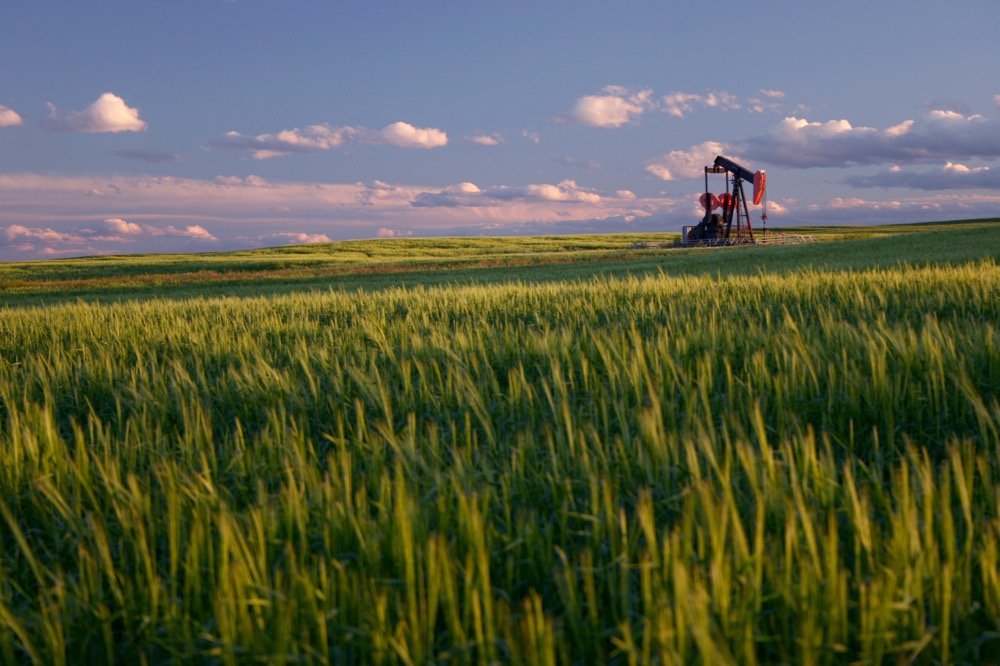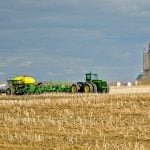The federal government continues to suggest the carbon tax imposed on Prairie farmers is necessary to reduce greenhouse gas emissions and may not be causing undue harm to the country’s agricultural sector.
Agriculture Minister Marie-Claude Bibeau speaks publicly about “special considerations” for farmers, while at the same time openly questioning carbon pricing’s effect on their operations. By saying as much, one would suggest she is being willfully oblivious.
Bibeau now suggests she needs more information to convince her cabinet colleagues more exemptions — such as one for grain drying — are needed.
Read Also

More Canadian companies at Agritechnica 2025
A record number of Canadian agriculture machinery and tech companies are at Agritechnica 2025, with exporters being more aggresive looking for new markets.
That sparked a justifiably outraged response from some industry groups and provincial government, who are frustrated because they believe they have already presented their case that carbon taxation doesn’t work for the sector.
Many farmers have taken to making the case themselves by sharing on social media platforms the high costs they are facing as a result of carbon pricing.
Is that enough to win over the carbon-pricing happy federal Liberal government?
So far, it clearly is not.
Weighing against the farmers’ case is Ottawa’s desire to achieve greenhouse gas emission reductions and fulfill its international agreements. As is, projections suggest that won’t happen; the $20 per tonne charge on greenhouse gas emissions would have to rise to roughly $210 a tonne for those targets to be met.
And if the recent election is used as a gauge, there is a clear desire among Canadians for carbon pricing, given most voters chose a party that supports it.
That is to say the Liberals have little to gain by easing their efforts to cut emissions, especially when they already offer a slate of exemptions to the agriculture sector, such as those on methane from livestock and nitrous oxide from cropland.
Instead, they are in a position where they are essentially asking for substantial proof their carbon policy hurts farmers, while continuing to largely ignore the already available evidence that it is doing just that.
Harvest 2019 was the first that included carbon pricing, so the sample size is indeed small. Farmers in Saskatchewan, Manitoba, Ontario and New Brunswick were subject to it; Alberta started falling under the federal system this month.
Already there are reports of farmers saying the policy cost thousands of dollars this year — and many aren’t accounting for indirect costs, like transport fees. These costs are significantly higher than any rebate being offered under the supposed “revenue-neutral” carbon pricing policy.
The Liberals also effectively ignored warning signs carbon pricing would have a negative impact on agriculture. Industry groups put out reports suggesting the carbon price would cost over $2 per acre, while the Senate recommended exemptions needed to be re-examined, “with special attention to competitiveness for producers and food affordability for Canadians.”
That report said the federal government should exempt the fuel costs for machinery that heats or cools a building used for farming and exempt propane and natural gas for all farming activities.
Had the federal government heeded those reports, given credence to various warnings and considered the already available evidence, farmers would not have been stuck paying high costs for grain drying and other operations this year.
And Bibeau wouldn’t be asking them to prove it.
— D.C. Fraser writes for Glacier FarmMedia from Ottawa.















